Filter by

A History of American Puritan Literature
For generations, scholars have imagined American puritans as religious enthusiasts, fleeing persecution, finding refuge in Massachusetts, and founding 'America'. The puritans have been read as a product of New England and the origin of American exceptionalism. This History challenges the usual understanding of American puritans, offering new ways of reading their history and their literary cult…
- Edition
- -
- ISBN/ISSN
- 9781108878425
- Collation
- -
- Series Title
- -
- Call Number
- -

A History of American Puritan Literature
For generations, scholars have imagined American puritans as religious enthusiasts, fleeing persecution, finding refuge in Massachusetts, and founding 'America'. The puritans have been read as a product of New England and the origin of American exceptionalism. This History challenges the usual understanding of American puritans, offering new ways of reading their history and their literary cult…
- Edition
- -
- ISBN/ISSN
- 9781108878425
- Collation
- -
- Series Title
- -
- Call Number
- -
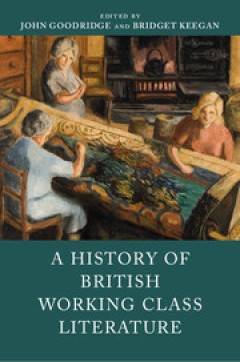
A History of British Working Class Literature
A History of British Working-Class Literature examines the rich contributions of working-class writers in Great Britain from 1700 to the present. Since the early eighteenth century the phenomenon of working-class writing has been recognised, but almost invariably co-opted in some ultimately distorting manner, whether as examples of 'natural genius'; a Victorian self-improvement ethic; or as an …
- Edition
- -
- ISBN/ISSN
- 9781108105392
- Collation
- -
- Series Title
- -
- Call Number
- -
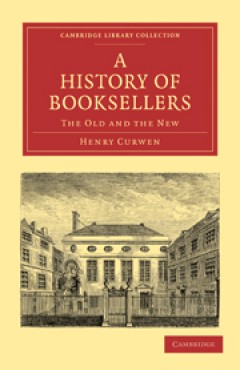
A History of Booksellers The Old and the New
Henry Curwen (1845–1892) was a journalist and author who became editor of the Times of India. First published in 1874, A History of Booksellers aimed at providing an informative but entertaining picture of British bookselling and publishing, by means of 'biographies' of the major publishing houses and their output. He begins with a general survey of publishing and bookselling from Roman times…
- Edition
- -
- ISBN/ISSN
- 9781139198066
- Collation
- -
- Series Title
- -
- Call Number
- -
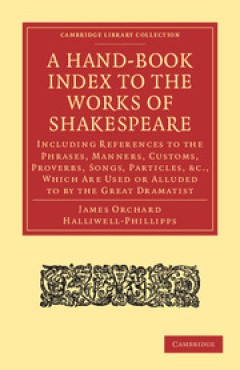
A Hand-Book Index to the Works of Shakespeare
Published in 1866, this is a meticulous, encyclopaedic listing of almost every word, place and character in Shakespeare's works. A must-have for every student of English literature, it is also an unparalleled guide for those left in the dark by Shakespearean English. James Orchard Halliwell-Phillipps (1820–1889), a renowned scholar, antiquarian, and collector of books on Shakespeare, provided…
- Edition
- -
- ISBN/ISSN
- 9780511693045
- Collation
- -
- Series Title
- Cambridge Library Collection - Literary Studies
- Call Number
- -
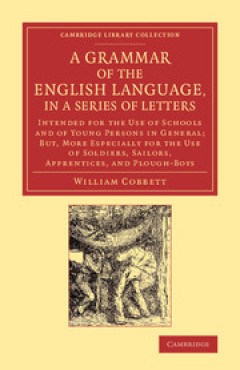
A Grammar of the English Language, in a Series of Letters Intended for the U…
Indefatigable as a writer and reformer on rural and political questions in his native Britain, William Cobbett (1763–1835) wrote the present work during the period he spent as a farmer in the United States. Intended for young people and especially 'soldiers, sailors, apprentices, and plough-boys' (Cobbett had himself been one of the latter), it provides concise and practical explanations of g…
- Edition
- -
- ISBN/ISSN
- 9781107256606
- Collation
- -
- Series Title
- Cambridge Library Collection - Literary Studies
- Call Number
- -
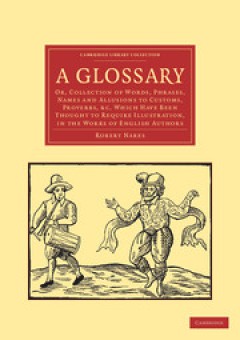
A Glossary Or, Collection of Words, Phrases, Names and Allusions to Customs,…
Originally published in 1822, Robert Nares' glossary of antiquated Elizabethan terms is the result of a personal interest in and love of Elizabethan literature. Nares (1753–1829), well known as a scholar and clergyman, was also a keen philologist and antiquary. This glossary was undertaken in his spare time, and compiled over forty years as he was often occupied with various academic and cler…
- Edition
- -
- ISBN/ISSN
- 9781139093781
- Collation
- -
- Series Title
- Cambridge Library Collection - Literary Studies
- Call Number
- -
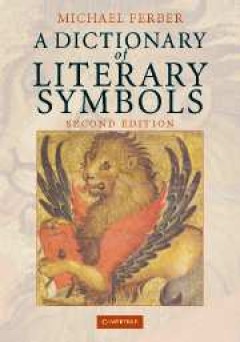
A Dictionary of Literary Symbols
This is the first dictionary of symbols to be based on literature, rather than 'universal' psychological archetypes or myths. It explains and illustrates the literary symbols that we all frequently encounter (such as swan, rose, moon, gold), and gives hundreds of cross-references and quotations. The dictionary concentrates on English literature, but its entries range widely from the Bible and c…
- Edition
- -
- ISBN/ISSN
- 9780511481475
- Collation
- -
- Series Title
- -
- Call Number
- -
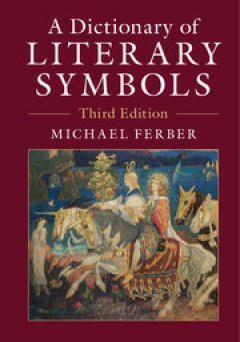
A Dictionary of Literary Symbols
This is an expansion of the first dictionary of symbols to be based on literature, rather than on 'universal' psychological archetypes or myths. It explains and illustrates the literary symbols that we frequently encounter (such as swan, rose, moon, gold) and gives thousands of cross-references and quotations. The dictionary concentrates on English literature, but its entries range widely from …
- Edition
- -
- ISBN/ISSN
- 9781316771426
- Collation
- -
- Series Title
- -
- Call Number
- -
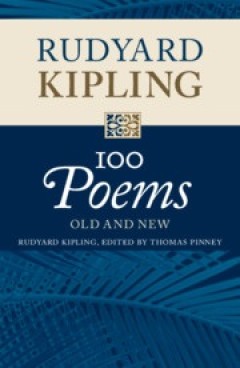
100 Poems: Old and New
Rudyard Kipling (1865–1936), winner of the 1907 Nobel Prize for Literature and author of one of the most popular poems in the English language, 'If–', has long captured the interest of poetry lovers. Here, Thomas Pinney brings together a selection of well-established favourites and the best of the previously uncollected and unpublished poems from The Cambridge Edition of the Poems of Rudyar…
- Edition
- -
- ISBN/ISSN
- 9781107279513
- Collation
- -
- Series Title
- -
- Call Number
- -
 Computer Science, Information & General Works
Computer Science, Information & General Works  Philosophy & Psychology
Philosophy & Psychology  Religion
Religion  Social Sciences
Social Sciences  Language
Language  Pure Science
Pure Science  Applied Sciences
Applied Sciences  Art & Recreation
Art & Recreation  Literature
Literature  History & Geography
History & Geography